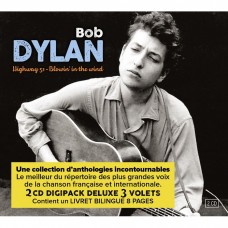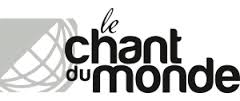|
Is it still worth presenting Bob Dylan, aka Robert Allen Zimmerman, born May 24, 1941 in
Duluth, Minnesota ? He spent his childhood in Hibbing and trained, as early as age 15, his first group
The Golden Chords with Monte Edwardson guitar and LeRoy Hoikkala drums. His model is then Little
Richard. For the rehearsals that take place in the family garage, Robert Allen plays harmonica and
guitar. In the absence of parents, the trio takes refuge in the living room where Robert Allen can prove
to his friends that he can also play the piano. Like all American teenagers of his generation, Robert
Allen will fall under the spell of Elvis Presley, James Dean and Marlon Brando, the three figures of
insubordination. In 1959, under the pseudonym (first of a long list) of Elston Gunnn, he integrates the
quintet of the singer Bobby Vee. Robert Allen will quickly tire of the narrow musical spectrum of Rock
'n' Roll and the indigence of most of the texts he conveys."Rock'n'roll wasn't enough... the songs
weren't serious or didn't reflect life in a realistic way". In September 1959, he left for Minneapolis,
enrolled at the university and began to become passionate about Folk Music"I knew that when I
got into folk music, it was more of a serious type of thing. The songs are filled with more despair,
more sadness, more triumph, more faith in the supernatural, much deeper feelings". Discovering the
recorded work of Woody Guthrie, he vows to become his most fervent disciple. In May 1960, Robert
Allen finally abandoned his studies, took the road to Madison, Wauwatosa, Milwaukee (Wisconsin),
with the unsurpassable horizon of the city of New York where he believes Guthrie resides. On Tuesday,
January 24, 1961, Bob Dylan arrives at Greenwich Village, soliciting a commitment to Cafe Wha?
without delay. This Coffee House on McDougal Street, was a hotbed of student youth. The following
Monday we find him on stage at Gerde's Folk City on 4th street west, where gather the cream of folk
musicians, Logan Eberhardt English, Carolyn Hester, Ramblin 'Jack Elliott, Tom Paxton, Dave Van Ronk,
The Weavers (Ronnie Gilbert, Lee Hays, Fred Hellerman & Pete Seeger), and also famous bluesmen
like Sonny Terry, Brownie McGhee or Gary Davis... Dylan visits Woody Guthrie bedridden at Greystone
Park Psychiatric Hospital in New Jersey. From April 11, he became for two weeks the headliner of
Gerde's Folk City. In September Carolyn Hester invites him to participate in the recording of her third
album for Columbia. October 26, 1961 Bob Dylan signs his first artist contract with John Hammond
on behalf of Columbia. Less than a month later, the recording sessions began, culminating in the
publication, on March 19, 1962, of his first official album, whose sales peaked at 5,000 copies the first
year. Under the name of Blind Boy Grunt he recorded for Broadside magazine a series of titles, most
of which will not be recorded by Columbia. The sessions of his second album, 'The Freewheelin' Bob
Dylan', will begin in April 1962. The album will have two successive editions of 13 tracks, including four
different from one press to another.
CD 1 Highway 51
1. You're no good
2. Fixin' to die
3. He was a friend of mine
4. House of the risin' sun
5. Talkin' New York
6. Song to Woody
7. Baby, let me follow you down
8. In my time of dyin'
9. Man on the street
10. Man of constant sorrow
11. Pretty Peggy-O
12. See that my grave is kept clean
13. Gospel plow
14. Highway 51
15. Freight train blues
16. House carpenter
17. I was young when I left home
18. In the evening
19. It's hard to be blind
20. Ramblin' round
CD 2 Blowin' in the wind
1. Talkin' John Birch blues
2. Gamblin' Willie's dead man's hand
3. Let me die in my footsteps
4. Blowin' in the wind
5. Honey, just allow me one more chance
6. Down the highway
7. Bob Dylan's blues
8. Corrina, Corrina
9. Solid road
10. Mixed up confusion
11. Don't think twice, it's all right
12. Oxford town
13. I shall be free
14. A hard rain's a-gonna fall
15. Hard times in New York
16. Hard travelin'
17. The ballad of Donald White
18. The death of Emmett Till
19. John Brown
20. Only a hobo |
|



